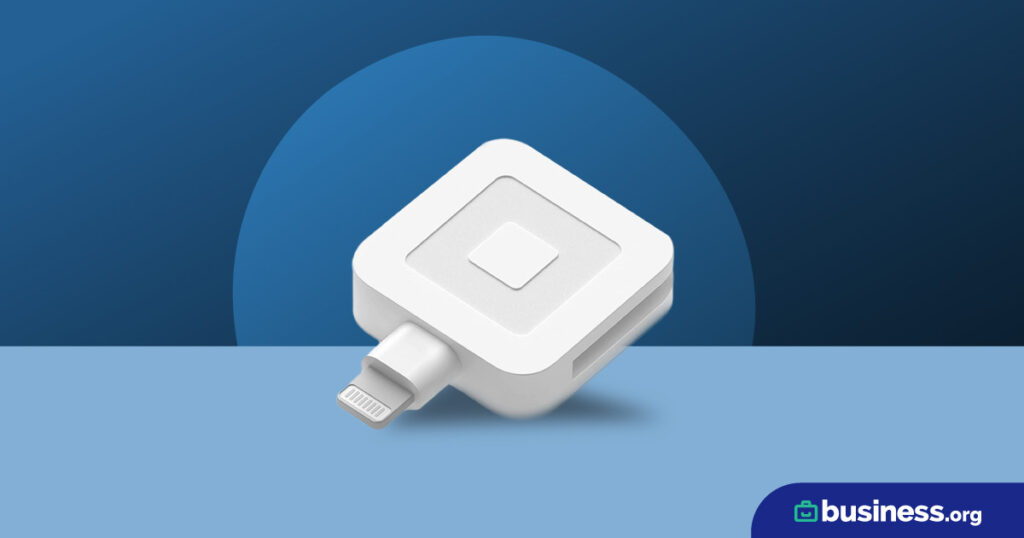We are committed to sharing unbiased reviews. Some of the links on our site are from our partners who compensate us. Read our editorial guidelines and advertising disclosure.
Can You Charge Your Customers a Credit Card Processing Fee?
No matter how crafty you get in finding the cheapest credit card processing solution, there’s no way to avoid those pesky fees.
Mastercard, American Express, Visa, and all other credit card providers charge fees whenever a card is used—these are called interchange fees. These fees are usually covered by the small businesses accepting the cards.
On top of interchange fees, small businesses usually have to pay for a processing service that makes it possible to take payments of all types—from card swipes to contactless payments.
For years, small businesses have either been accepting these fees as the cost of playing ball or trying to pass the costs along to the customer, but what should you do? How can you mitigate the costs of credit card processing?
What’s the average processing fee for small businesses?
Unfortunately, we can’t give a specific processing fee average because processing fees are largely dependent on your processing provider. Providers that offer a lot of point-of-sale features often charge a little more per swipe or month. So one of the easiest ways to mitigate processing costs right off the bat is by finding the cheapest processing solution.
Interchange rates also affect how much you pay per swipe, and they’re different for each credit card provider. Even so, some credit card processing companies charge a flat rate per transaction, but others charge a percentage in addition to the interchange cost.
Your average fees are also affected by the types of payments you usually accept. In-person payments like a swipe or a dip are usually the lowest cost. Keyed payments are a little more expensive, with online payments usually being the most expensive.
So your average cost really depends on who your processing provider is, what cards your customers typically use, and what types of payments you accept.
By signing up I agree to the Terms of Use and Privacy Policy.
Convenience fees vs. surcharges
Sometimes businesses will try to mitigate their processing costs by charging credit card fees to customers whenever they use a credit card. Two kinds of fees are the most common: convenience fees and surcharges.
There are specific cases where either fee may be appropriate, but it’s important to know when it’s both appropriate and legal to use each.
Convenience fees
A convenience fee can only be assessed when the payment type is considered nonstandard. For example, it’s nonstandard to pay tuition with a credit or debit card. Tuition payments are generally made using cash, check, or ACH payments. Schools, then, can legally charge convenience fees for credit card tuition payments.
Another common example of nonstandard payment acceptance is a movie theater charging customers credit card processing fees when they purchase tickets online or over the phone. Box office ticket purchases are considered standard for movie theaters.
The legal convenience fee amount that can be charged is determined by the credit card companies. Some credit card companies are strict in their allowance of extra fees. Mastercard, for example, allows convenience fees only for government, education, and tax-related payments.
States may also have specific laws governing extra fees, so you should be sure your fees comply with state laws before assessing them to your customers.
Surcharge
Surcharges are another regulated type of credit card fee. Surcharges are simply fees assessed to any customer who uses a credit card.
Credit card companies and state governments heavily regulate these kinds of charges as well. In fact, surcharges are illegal in 11 US states and territories.
How to charge customers for credit card fees
Charging customers for credit card fees can be a tricky business. You can use convenience fees, which apply when customers make an online purchase or phone order and pay with a credit card. These vary depending on the business, but they often fall around 2-3% of the total order amount.
Another option is to use surcharge fees, which are generally set by individual states and typically range from 1-4% of the total transaction.
Of course, businesses always have the option to choose not to charge customers extra for their credit card usage at all.
Ultimately, deciding how to charge customers for credit card fees requires careful consideration of your business strategy and goals as well as any regulations or restrictions in your area. But whatever method you choose, it's important to make sure that your pricing strategies are fair and transparent so that you can continue building trust and loyalty with your customers over time.
Is it legal to charge a credit card processing fee?
As stated above, surcharges are illegal in 11 US states and territories and may be regulated in other states as well:
- California
- Colorado
- Connecticut
- Florida
- Kansas
- Maine
- Massachusetts
- New York
- Oklahoma
- Texas
- Puerto Rico
States where surcharges are legal usually allow businesses the freedom to choose the extra fee percentage assessed per transaction. The total allowed charge usually caps at 4%.
Any convenience fee or surcharge assessed must be disclosed before any payment is made. Businesses who charge extra fees often post signs and have their employees disclose the fees whenever a customer opts for a card payment.
Our advice is this: if you’re planning to assess a convenience fee or surcharge to your customers, contact your processing provider and get legal advice. Your payment provider may have surcharge features baked into their services that are legally compliant. That’s the easiest way to start charging credit card fees.
Other strategies for recouping credit processing costs
Some states that don’t allow surcharges to be assessed do allow businesses to run programs that encourage customers to use other payment methods. For example, your store could offer a cash discount. Whenever someone pays with cash, they get a 5% discount on any product in your store.
We weren’t able to find any instances where these kinds of discounts were expressly illegal, but you should still get legal counsel on any credit card fee or discount program.
There are also ways to mitigate costs that don’t have any legal ramifications. If you sell some of your wares online, for example, you get to control the price of your goods, so you can just make your online products a little more expensive.
Possible negatives for your customers
Certain customers may be turned off by price hikes or extra fees. It’s important to think of the branding implications for charging extra fees. For some customers, it can feel like a low-quality move.
When your customers go to stores run by big businesses, they’re usually not assessed extra fees for using a credit card, so it can make your brand appear lower in value for tacking on credit card fees.
The takeaway
Surcharges and convenience fees can help you recoup some of your processing costs, but they’re tricky to get started. There are laws preventing these kinds of charges in certain states, and even when you’re finally confident you can charge them, you might encounter negative branding effects from customers who don’t like paying extra fees.
Here’s the bottom line: be careful in your decision to charge customers extra fees for using credit cards. Be sure to get legal advice and to talk to your processing company about possible built-in surcharge functionalities with their software and hardware. Try to find alternate ways to recoup costs if you can by offering cash discounts or raising prices nominally.
Also, don’t forget to compare your credit card processing options. There may be significant savings available for you if you just switch to a new provider.
If you need help finding the right credit card processing provider, we recently released our picks for the best credit card processing solutions.
Related reading



